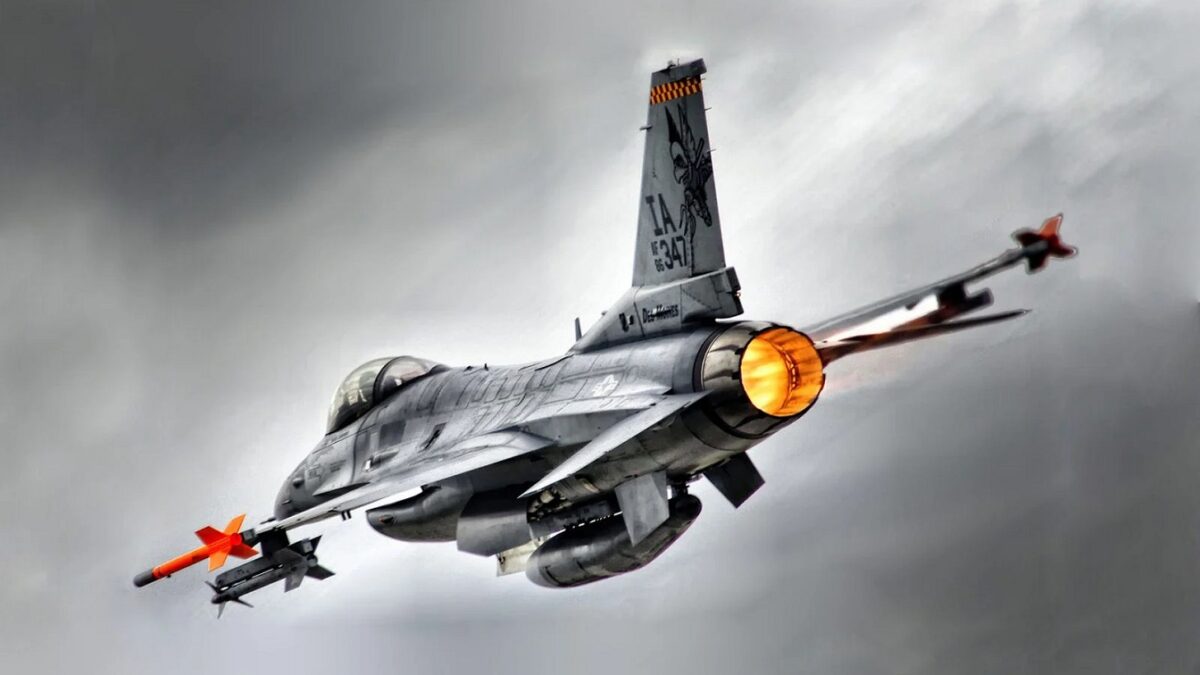The troubling events in Ukraine are a direct threat to the interests of the US and its allies, but also an indirect threat by giving leverage to a wayward Turkey to strong-arm the US and its allies into ignoring its non-stop abuses simply to get Turkey to help Ukraine against Russia. Turkish acquisition of advanced weaponry, most recently its attempts to purchase advanced F-16 fighter jets, is the issue where this dynamic has played out most clearly.
Senate Foreign Relations Committee Chair Bob Menendez (D-NJ) just put this issue front and center by introducing an Amendment that would condition Turkey’s ability to buy advanced F-16s.
Scholars have long pointed to President Recep Tayyip Erdogan’s “Pan-Islamist, Neo-Ottoman,” ideology as a threat to regional stability. As such, Turkey was already on a downward slope in its relationship with the US. After Turkey’s purchase of the S-400 missile from Russia, it became a downward spiral. Turkey was the subject of the Countering America’s Adversaries Through Sanctions Act (CAATSA) due to its deal with Russia and was removed from the F-35 program. Rather than reversing course, Ankara simply changed its request to purchase advanced F-16s to modernize its air force.
Ankara’s assumption seemed to be that the US was forced to kick them out of the F-35 program, but that once that was done, things would go back to normal. They were in for a rude awakening. Congressional pushback was immediate, with a pair of bipartisan letters, representing a bipartisan coalition of nearly 60 House members, opposing any sale of advanced F-16s to Turkey. Senator Bob Menendez (D-NJ), the Chairman of the Senate Foreign Affairs Committee, also opposed the sale, and Ranking Member Senator Jim Risch (R-ID) was also hesitant, saying “Until the issues surrounding [the S-400 missile] purchase are resolved I cannot and will not support weapon sales to Turkey.”
Just as bad for Ankara: the Biden Administration was lukewarm and made no firm commitments. Now-US Ambassador to Turkey, Jeff Flake, pledged further CAATSA sanctions should Turkey buy more Russian weapons.
Russia’s invasion of Ukraine gave Erdogan a new lease on life. Now portraying Turkey, untruthfully, as a steadfast ally of NATO’s position on Ukraine, or alternatively as a useful arbiter between Ukraine and Russia, Erdogan had newfound leverage.
Sen. Risch softened his stance, saying “The Turks have made a credible argument for why they should get the F-16s. I’m positively disposed in that direction, but I’m not completely there yet.” Senator Marco Rubio (R-FL), usually a critic of Turkey, said “I support the sale. While we have differences with the Turkish government, Turkey is a NATO ally, and we need to strengthen that alliance.”
This dynamic accelerated after Sweden and Finland petitioned to join NATO. Turkey’s Foreign Minister Mevlüt Çavuşoğlu immediately said that “Countries supporting terrorism should not be allies in NATO,” referring to Sweden and Finland’s support for Turkey’s oppressed Kurdish minority. Quickly, NATO countries worked to ensure Turkey wouldn’t halt NATO enlargement.
After Turkey acquiesced to Sweden and Finland’s accession to NATO, Biden announced his support of the sale of F-16’s. However, Biden personally stressed that “I need congressional approval to be able to do that.”
During the recent House side passage of the NDAA, Reps. Chris Pappas (D-NH) and Frank Pallone (D-NJ) offered an amendment that would bar the sale unless it is certified by the Administration that it is necessary for U.S. national security and demonstrated concrete steps taken to ensure they are not used for repeated unauthorized overflights of Greece.
One would not naturally think that one NATO ally would be flying aggressive missions over another’s airspace. But just last month, Turkey violated Greek airspace 110 times in a single day, an issue that has become a “daily source of tension” according to Greek news outlets. The diplomatic strain between the two is severe. This is partly about the decades-old fight over the island of Cyprus, but also other items such as an oil pipeline between Israel and Greece, among others. Leaked documents suggest Turkey even has ready-made plans to invade Greece. These are not trivialities.
So when the amendment passed with a comfortable bipartisan majority of 244 to 179, Turkey was put in a difficult spot. Çavuşoğlu called any such restrictions “unacceptable,” a sentiment echoed by Turkish Defense Minister Hulusi Akar, who nonetheless insisted that the House Amendment could be overcome because of “work to be done in both the White House and the Senate.” Erdoğan threatened to purchase jets from Russia, the United Kingdom, or France instead.
However, Senator Menendez is now offering a similar amendment in the Senate, something that is expected to be voted on in the coming weeks. A coalition of various ethnic groups and thinkers have signaled their support. This amendment will put the issue in focus. Will Turkey follow through and refuse to buy F-16s if they cannot use them against Greece?
The Biden Administration’s position is nuanced. Given Biden’s insistence on Congressional approval, when he has the power to waive it in emergency situations, it’s fair to ask if his statement is a face-saving way to deny Turkey the jets, while still gaining Turkey’s cooperation on Ukraine.

F-16 fighter. Image Credit: Creative Commons.
The logic of the situation is clear: the US is willing to appease Turkey if it means NATO unity in opposition to Russia’s reckless and criminal attack on Ukraine. But Turkey cannot credibly claim that the sale will provide that sort of unity if they are openly signaling they intend on using American jets to antagonize Greece.
Turkey is hoping that the Senate will overlook this contradiction. It should not. Erdoğan privately disdains NATO, and simply uses it as a tool to gain leverage. Erdoğan is all too ready to move closer to Russia, to Iran, and to coddle the most radical Islamist movements. Turkey needs to change its behavior, not its ask.
Until that time comes, the US should reject Turkish demands that it be allowed to use US technology to antagonize a fellow NATO member.
Clifford Smith is director of the Middle East Forum’s Washington Project. Follow him on Twitter and Facebook.

